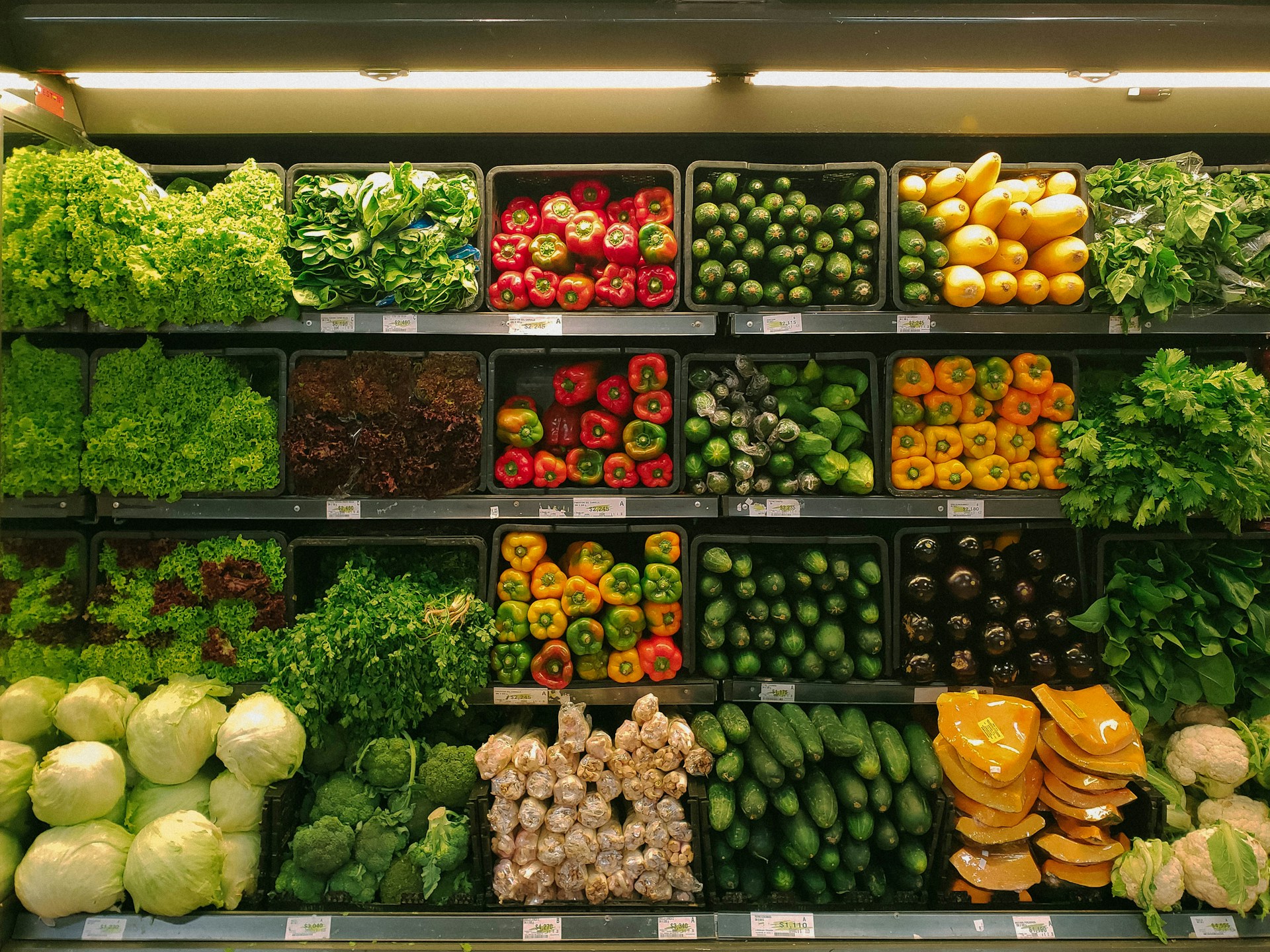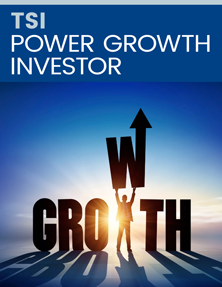Topic: Growth Stocks
Metro continues to impress with its initiatives
Under pressure from the federal government, Canada’s leading grocery chains like Metro have agreed to a series of measures to lower prices for consumers. Those include discounts, price-matching campaigns, and price freezes. The government is also looking at ways to get food producers to lower their prices.
We feel this firm, which has embraced new industry consumer standards, is well positioned to adapt. Moreover, its new automated distribution centres are poised to lower its costs and lift its long-term profitability.
 For a rising portfolioLearn everything you need to know in 'How to Find the Best Growth Stocks' for FREE from The Successful Investor. Canadian Growth Stocks: CGI Group, CAE Inc., Fortis Inc. Stock and more. |
METRO INC., (Toronto symbol MRU) operates 992 grocery stores and 640 drugstores, in Quebec, Ontario and New Brunswick.
The company began operating in 1947 as Magasins Lasalle Stores ltée after a group of independent grocery retailers joined forces to secure bulk discounts from their suppliers.
Over the next few years, the company added other affiliated grocers. It merged with the Marché Richelieu grocery chain in 1975 to form Groupe Metro-Richelieu Inc.
The company later changed its name to Metro-Richelieu Inc. (and later to Metro Inc.) and listed its shares on the Montreal Stock Exchange in 1986, and on the Toronto Stock Exchange in 1993.
We first recommended Metro (then called Metro-Richelieu) in the second issue of our Power Growth Investor newsletter (then called Stock Pickers Digest) in July 1998 at $20.05 a share ($3.54 after a 2-for-1 split in February 2002, and a 3-for-1 split in February 2015).
The stock is now up an amazing 2,449.6% since then.
Meanwhile, in December 2007, we moved Metro from Stock Pickers Digest to The Successful Investor, our publication for more conservative investors. The move reflected both its new status as a larger-cap stock and its established dividend history.
Growth Stocks: Two purchases triggered massive gains for Metro’s shareholders
The company has made a series of acquisitions over the years that have helped it compete with bigger food chains. The most significant were the purchases of A&P Canada and Jean Coutu Group.
In 2005, Metro expanded outside of Quebec with its $1.7 billion acquisition of A&P Canada. A&P Canada operated 244 food stores throughout Ontario under the A&P, Dominion, Food Basics, The Barn and Ultra Food & Drug banners.
The company’s biggest acquisition came in May 2018, with Metro’s purchase of Quebec-based drugstore chain Jean Coutu Group. That chain also makes generic pharmaceutical drugs through its Pro Doc business. Metro paid $4.5 billion—75% in cash and 25% in Metro common shares.
Growth Stocks: Automation will help cut Metro’s labour costs
In August 2023, the company agreed to a new contract with the union representing 3,700 workers at 27 supermarkets in the Greater Toronto Area. That ended a five-week strike. While the new contract will raise Metro’s costs, labour peace helps cut its risk. The company’s strong market share should also let it pass along most of these higher costs to its customers.
At the same time, Metro is using automation to cut its labour costs. For example, in 2022 it opened a new $400 million distribution centre in Toronto that uses automated equipment to handle fresh and frozen foods.
In November 2023, it then opened its $420 million automated distribution centre for fresh and frozen products in Terrebonne, Quebec, just north of Montreal. With a total surface area of over 600,000 square feet, the equivalent of more than 10 football fields, the nine-storey building houses two distinct temperature-controlled zones for some 7,000 fresh and frozen products. Employees are also able to enjoy a cafeteria with meals cooked on site, a fitness room and a daycare centre that will open its doors this year.
Meanwhile, Metro’s enhanced loyalty program should continue to pay off. In May 2023, the company launched its new MOI rewards program across all of its supermarkets and pharmacies. Subsequently, the company’s Jean Coutu drugstore chain withdrew from the Air Miles loyalty reward program to focus on the MOI loyalty program. As a result, Metro wrote down the value of the Air Miles program by $44.1 million.
All in all, the MOI program should help encourage more repeat visits and higher spending per visit. It gives Metro insight into the buying habits of loyal customers, and lets it offer them personalized promotions to increase their purchases at its stores.
Metro recently formed a new alliance with AddÉnergie Technologies Inc. (which operates as Flo). Under this deal, Flo will install more than 500 of its ultra-fast-charging electric vehicle (EV) charging stations at 130 of Metro’s stores in Ontario and Quebec.
Flo will begin installing these chargers in August, and it should complete the project over the next three years. It will own and operate these new stations.
For Metro, the chargers should help it attract more customers who drive EVs, and help it reach its greenhouse gas reduction targets.
Growth Stocks: Both revenue and earnings keep climbing each year
As a result of the Jean Coutu purchase, Metro’s sales rose 16.6%, from $14.38 billion in 2018 to $16.77 billion in 2019 (fiscal years ended September 30). Revenue then rose 7.3% in 2020 to $18.00 billion. In 2021, revenue then climbed 1.6%, to $18.28 billion. Revenue then rose a further 3.3% in 2022 to $18.89 billion. In 2023, revenue increased 9.7%, to $20.72 billion.
Overall earnings rose 26.3%, from $579.2 million, or $2.41 a share, in 2018 to $731.6 million, or $2.84 a share, in 2019 (fiscal years ended September 30). Earnings climbed 13.3% in 2020 to $829.1 million, or $3.27 a share. In 2021, earnings rose again, 3.0% to $854.2 million, or $3.44 a share. Earnings increased a further 7.9% in 2022, to $922.1 million, or $3.82 a share, before rising 9.2%, to $1.01 billion, or $4.30 a share, in 2023.
Meanwhile, in the fiscal 2024 third quarter, ended July 6, 2024, overall sales rose 3.5%, to $6.65 billion from $6.43 billion a year earlier. That beat the $6.60 billion consensus forecast.
Thanks partly to higher selling prices, same-store sales at Metro’s food stores rose 2.4%. Same-store sales at the company’s drugstores also improved 5.2%. That reflects a 6.3% increase in prescription drug sales, as well as a 3.0% rise in sales of other products, particularly cosmetics and beauty products.
If you exclude unusual items, Metro’s overall earnings in the latest quarter fell 3.1%, to $305.0 million from $314.8 million a year earlier. Due to fewer shares outstanding, earnings per share were unchanged at $1.35. That still beat the consensus estimate of $1.34 a share.
The lower overall earnings are largely due to the construction and start-up of Metro’s new automated distribution centres in Montreal and Toronto (see above).
Growth Stocks: Pandemic triggered many positive changes for future
We feel Metro’s new initiatives, which the pandemic accelerated, set it up for more growth. They include expanding its online ordering and home delivery services as well as its customer loyalty plans.
The company also aims to lower its operating costs with new automated warehouses and self-serve checkouts. Any improvements there are a big gain for supermarkets, which have much lower profit margins than other industries.
At the same time, Metro’s earnings should continue to improve, even if consumers shift to lower-priced products. That’s because it owns the discount Food Basics chain as well as several private-label brands (Selection and Irresistibles).
The company expects the costs to shift its current operations to its new automated facilities will cut its earnings for all of fiscal 2024 by roughly $0.06 a share to $4.26. The stock trades at a reasonable 20 times that forecast. However, beyond fiscal 2024, Metro expects its annual earnings per share will rise between 8% and 10%.
In fact, the company is so confident of its future prospects that it has just raised your quarterly dividend by 10.7%. Starting with the March 2024 payment, investors receive $0.335 a share instead of $0.3025. The new annual rate of $1.34 yields 1.6%. Metro has a long history of rewarding investors: it has raised its dividend each year for 30 years.
Recommendation in The Successful Investor: Metro Inc. is a buy.
We hope you benefited from this analysis of Metro Inc. The company is just one of the top-performing stock picks of our Canadian Wealth Advisor Investor newsletter.
Of course, not all our picks over the years have produced these kind of spectacular gains. Some, in fact, have led to losses. But all portfolios need superstar stocks like this to offset those inevitable losses.
Subscribe to The Successful Investor so you can access many more market-leading Buy recommendations for maximum returns.




I am disappointed with the constant repition of previous picks and research.
I would also like to see new recommended stocks at least one a week.
Thanks for your comment. The daily emails—including the one you mention—are designed as an introduction for free subscribers to TSI’s wealth of premium subscriber content, from our seven individual newsletters to Pat’s Inner Circle and Inner Circle Pro memberships.
And, now, to further encourage free subscribers to upgrade to one of our paid publications, we will be repeating a few key free Dailies on an even more regular basis.
Please note, though, that as a Dividend Advisor subscriber you will continue to receive Pat’s latest advice through the newsletter and weekly Hotlines—but not in the free Dailies.